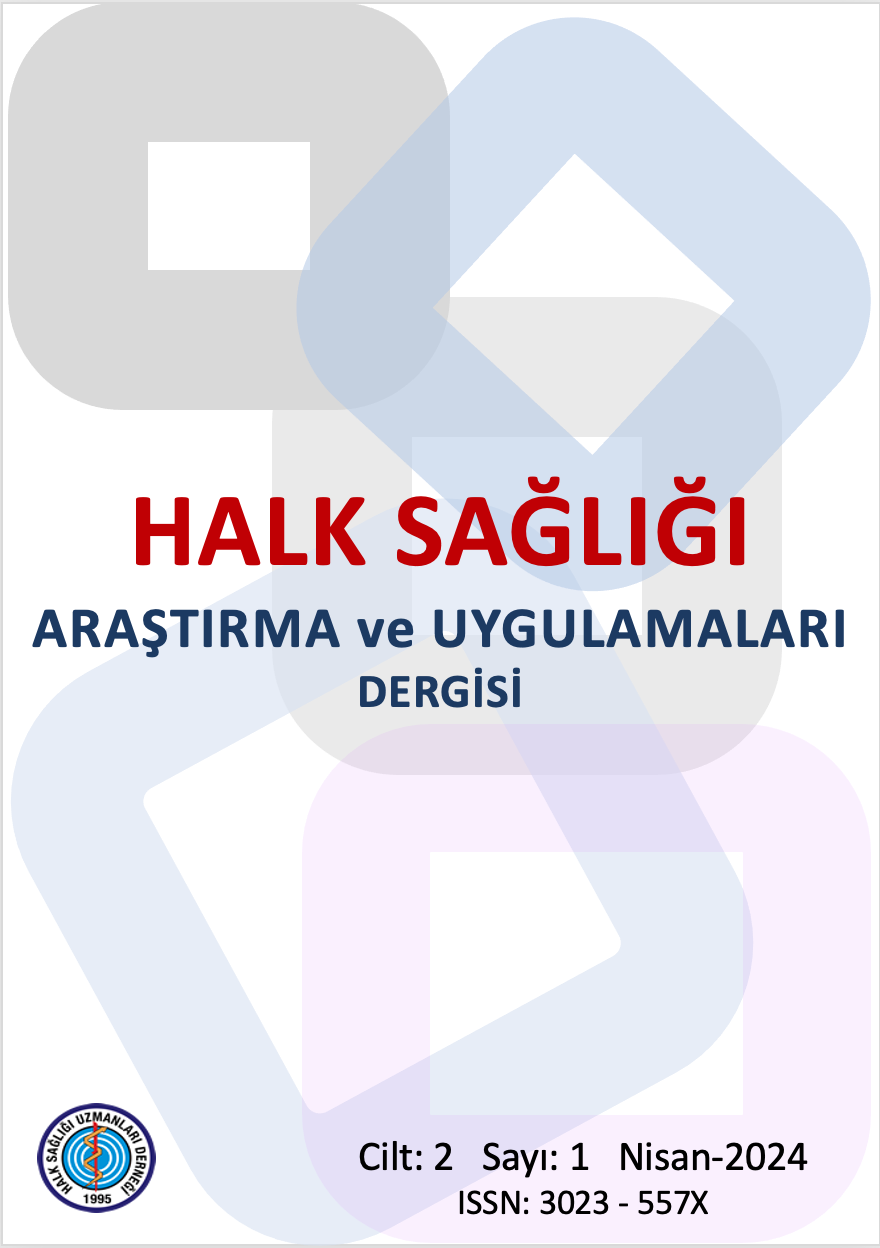Academia and well-being
DOI:
https://doi.org/10.5281/zenodo.11046964Keywords:
Health, Well-being, Health Promotion, Academy, UniversityAbstract
The World Health Organization (WHO) relates health and well-being and defines them with their physical, mental and social dimensions. According to WHO, well-being is a positive source of daily life for individuals and societies and, just like health, is affected by social, economic and environmental determinants. Well-being is related to both the quality of life and the ability of individuals and societies to contribute to the planet with meaning and purpose. Based on this, holistic efforts to promote health and well-being in academic life, including academics, students, administrators, university employees, and university campuses, have a positive effect on individuals, as well as the education, research and scientific production of universities. Investing in promotion of health and well-being in academia is one of the most important investments that strengthens universities’ benefits for society and their contributions at the local, national and global level. In order to protect and promote well-being in academia based on health promotion principles, we need multi-dimensional policies and practices, which are often not as difficult to implement as it seems, in addition to healthy communication, which is indispensable for academic life.
References
WHO, Constitution of the World Health Organization, 1948, Geneva. [Erişim tarihi: 10 Şubat 2024]. Erişim adresi: https://www.who.int/about/who-we-are/constitution
Leonardi F. The definition of health: towards new perspectives. International Journal of Health Services, 2018, 48(4), 735-748.
What is health? The ability to adapt. Lancet. 2009 Mar 7;373(9666):781. doi: 10.1016/S0140-6736(09)60456-6.
Merriam-Webster. History and etymology for salutogenesis. [Erişim tarihi: 16 Şubat 2024]. Erişim adresi: https://www.merriamwebster. com/dictionary/salutogenesis.
Eriksson M and Lindstrom B. Salutogenesis and Resilience: two sides of the same coin? Psychology and Health 2012, 27(Suppl1):41–41. https://doi.org/10.1080/08870446.2012.707817
Rusk RD, Water LE. Tracing the size, reach, impact, and breadth of positive psychology. J. Posit. Psychol. 2013;8:207–221. doi: 10.1080/17439760.2013.777766.
Jarden A, Roache A. What Is Wellbeing? Int J Environ Res Public Health. 2023 Mar 12;20(6):5006. doi: 10.3390/ijerph20065006.
Korkut-Owen ve Owen. İyilik hali yıldızı modeli, uygulanması ve değerlendirilmesi. Uluslararası Avrasya Sosyal Bilimler Dergisi 2012, (3):9 ss:24-33.
Doğan T. Üniversite öğrencilerinin iyilik halinin incelenmesi. Yayınlanmamış doktora tezi. Hacettepe Üniversitesi, 2004, Ankara.
Fidan M ve Usta F. İyilik Hali Ölçeği'nin Türkçe Formu'nun güvenirlik ve geçerliğinin incelenmesi. Eğitim ve Öğretim Araştırmaları Dergisi 2013, 2(3): 265-269.
Eser, E., Çevik, C., Baydur, H., Güneş, S., Esgin, T. A., Öztekin, Ç. S., … & Özyurt, B. (2019). Reliability and validity of the Turkish version of the WHO-5, in adults and older adults for its use in primary care settings. Primary health care research & development, 20(e100), 1-7. https://doi.org/10.1017/S1463423619000343
Şahin D ve Arslan T. İş Yerinde İyilik Hali Ölçeğinin Kısa Formunun geçerlilik ve güvenilirlik çalışması. Uluslararası Yönetim İktisat ve İşletme Dergisi 2023, 19(3): 623-637.
Siyez, D.M., Esen, E., Seymenler, S. ve Öztürk, B. (2017). Beliren Yetişkinler için İyilik Hali Ölçeği’nin geliştirilmesi, geçerlik ve güvenirlik çalışması. 2. Avrasya Pozitif Psikoloji Kongresi içinde (s.83-84). İstanbul: Üsküdar Üniversitesi.
Owen-Korkut F, Doğan T, Çelik-Demirbaş N, Owen DW. İyilik hali yıldızı ölçeği'nin geliştirilmesi. Journal of Human Sciences 2016, 13(3): 5013-5031.
Brüggen, E. C., Hogreve, J., Holmlund, M., Kabadayi, S., & Löfgren, M. (2017). Financial Well-Being: A Conceptualization And Research Agenda. Journal of Business Research, 79, 228–237.
Environmental well-being. Harvard University, 2024. [Erişim tarihi: 12 Mart 2024]. Erişim adresi: https://wellness.huhs.harvard.edu/environmental
WHO, Promoting well-being, 2024. [Erişim tarihi: 13 Mart 2024], Erişim adresi: https://www.who.int/activities/promoting-well-being
WHO, 10th Global Conference on Health Promotion. [Erişim tarihi: 18 Mart 2024], Erişim adresi: https://www.who.int/teams/health-promotion/enhanced-wellbeing/tenth-global-conference-on-health-promotion
WHO, The Geneva Charter for Well-being. [Erişim tarihi: 18 Mart 2024], Erişim adresi: https://cdn.who.int/media/docs/default-source/health-promotion/geneva-charter-4-march-2022.pdf?sfvrsn=f55dec7_21&download=true
WHO (1986) The Ottawa Charter for Health Promotion. [Erişim tarihi: 18 Mart 2024], Erişim adresi: https://www.who.int/healthpromotion/conferences/previous/ottawa/en/
WHO. Achieving well-being: a global framework for integrating well-being into public health utilizing a health promotion approach. The Seventy-sixth World Health Assembly, 2023. [Erişim tarihi: 19 Mart 2024]. Erişim adresi: https://apps.who.int/gb/ebwha/pdf_files/WHA76/A76(22)-en.pdf
WHO. One health. [Erişim tarihi: 20 Mart 2024]. Erişim adresi: https://www.who.int/health-topics/one-health#tab=tab_1
Sanci L, Williams I, Russell M. et al. Towards a health promoting university: descriptive findings on health, wellbeing and academic performance amongst university students in Australia. BMC Public Health 2022: 22 (2430). https://doi.org/10.1186/s12889-022-14690-9
University of Minnesota. Communication in the real world: An introduction to communication studies. University of Minnesota Libraries Publishing, 2016. [Erişim tarihi: 20 Mart 2024]. Erişim adresi: https://open.lib.umn.edu/communication
Communicating for Academic Integrity, University of Oregon. [Erişim tarihi: 19 Mart 2024]. Erişim adresi: https://teaching.uoregon.edu/resources/communicating-academic-integrity
Alex-Assensoh YM. The power of L.A.C.E. Oregon State Bar Bulletin, 2021, 81(6), 62.
Blaisdell, Kellyn N. & Alex-Assensoh, Yvette M. L.A.C.E. Classroom Resources. University of Oregon, Dec 2021. [Erişim tarihi: 19 Mart 2024]. Erişim adresi: https://inclusion.uoregon.edu/sites/inclusion2.uoregon.edu/files/2022-02/lace-toolbox-december-2021.pdf
Hood, Bruce. The Science of Happiness: Seven Lessons for Living Well. United Kingdom: Simon & Schuster, 2024.
Clear, James. (2018). Atomic habits: tiny changes, remarkable results : an easy & proven way to build good habits & break bad ones. New York, New York, Avery, an imprint of Penguin Random House.
Muhammad A, Ishamuddin M, Sharina O, Umar H. University social responsibility: A review of conceptual evolution and its thematic analysis. Journal of Cleaner Production 2021: (286), https://doi.org/10.1016/j.jclepro.2020.124931.
Bushkin H, van Niekerk R, Stroud L. Searching for Meaning in Chaos: Viktor Frankl's Story. Eur J Psychol. 2021 Aug 31;17(3):233-242. doi: 10.5964/ejop.5439.
Taylor SE, Peplau LA, Sears DO. Sosyal Psikoloji, (Çev. A. Dönmez), İstanbul: İmge Kitabevi Yayınları, 2010.
Kasapoğlu F. İyilik Hali İle Özgecilik Arasındaki İlişkinin İncelenmesi. Hikmet Yurdu Sosyal Bilimler Araştırma Dergisi 2014, 7(13): 271-288
Downloads
Published
How to Cite
Issue
Section
License
Copyright (c) 2024 HALK SAĞLIĞI ARAŞTIRMA VE UYGULAMALARI DERGİSİ

This work is licensed under a Creative Commons Attribution-NonCommercial 4.0 International License.


